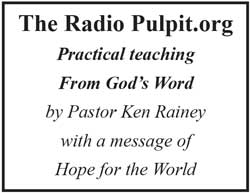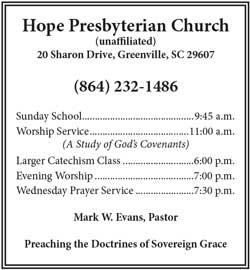With graduations over and students out for summer break we may not be thinking much about school or education at this time. Most of us were glad when graduation finally came, and we were certainly relieved when classes were over for the summer.
Now that the academic year has ended, however, I have been thinking about a different school. It is a school from which there are no graduates and the curriculum is one of life-long learning. This is a school where no academic credit is given nor is a grade-point maintained. It is the School of Prayer.
Have you ever thought of prayer as being something in which you need schooling? Are there some lessons you need to be taught with regard to prayer? In there a curriculum with lesson plans?
The disciples of Jesus must have had similar questions following their observation of Jesus as He prayed: “Now it came to pass, as He was praying in a certain place, when He ceased, [that] one of His disciples said to Him, ‘Lord, teach us to pray, as John also taught his disciples’” (Luke 11:1 NKJV).
The Apostle Paul also spoke of the Holy Spirit's aid in prayer as he also sensed an inadequacy regarding prayer: “Likewise the Spirit also helps in our weaknesses. For we do not know what we should pray for as we ought, but the Spirit Himself makes intercession for us with groanings which cannot be uttered” (Rom. 8:26 NKJV).
Even the wisest of men warns of inadequacy in bringing a matter before the presence of God: “Walk prudently when you go to the house of God; and draw near to hear rather than to give the sacrifice of fools, for they do not know that they do evil. Do not be rash with your mouth, and let not your heart utter anything hastily before God. For God [is] in heaven, and you on earth; therefore let your words be few” (Eccl. 5:1-2 NKJV).
Jesus was willing to share with His disciples a model prayer which has become the curriculum for continuing education with regard to prayer (Luke 11:2-4; Matt. 6:5-8).
When we pray we are to regard God as a loving Father, who carefully watches over us and knows all about us. Prayer is meant to be a response to our Father within an intimate relationship. Jesus said, “your Father knows what you need . . . .” The understanding of this dramatically changes our approach to prayer. God is neither ignorant of our needs nor in need of our persuasion.
Some believers mistakenly believe that “the probability of an answer is in proportion to the total number of words in the prayer” says K. A. Carson. “They imagine that the more they say, the more likely they are to be heard.”
Repetition of itself is not wrong (cf. Matt. 26:44; II Cor. 12:7). It is meaningless repetition that approaches God as if He doesn't know our needs unless we inform Him which is to be avoided. Nor is lengthy, sustained persistent prayer condemned (Luke 6:12; I Thess. 3:10; I Tim. 5:5). Rather the denunciation is of thoughtless repetition and incantations that characterized pagan worship.
Music sometimes can be thoughtlessly used in such a manner to foster an atmosphere or mood as accompaniment to prayer and worship. This comes dangerously close to what Jesus condemned. Any prayer that needs to be worked-up, built -up, or warmed-up emotionally defies the deliberate thoughtful prayers which are found in Scripture. Scriptural prayers are characterized by simplicity, honesty and clarity. The point of Scripture is quite clear: God wants our minds, as well as our hearts, to be fully engaged in prayer.
This is a lesson we are ever learning in the School of Prayer.
That's the way we view things.
--------------------------------------------
Summit View Baptist Church is located at 31 N. Highway 25 Bypass, just south of Furman University’s golf course.














